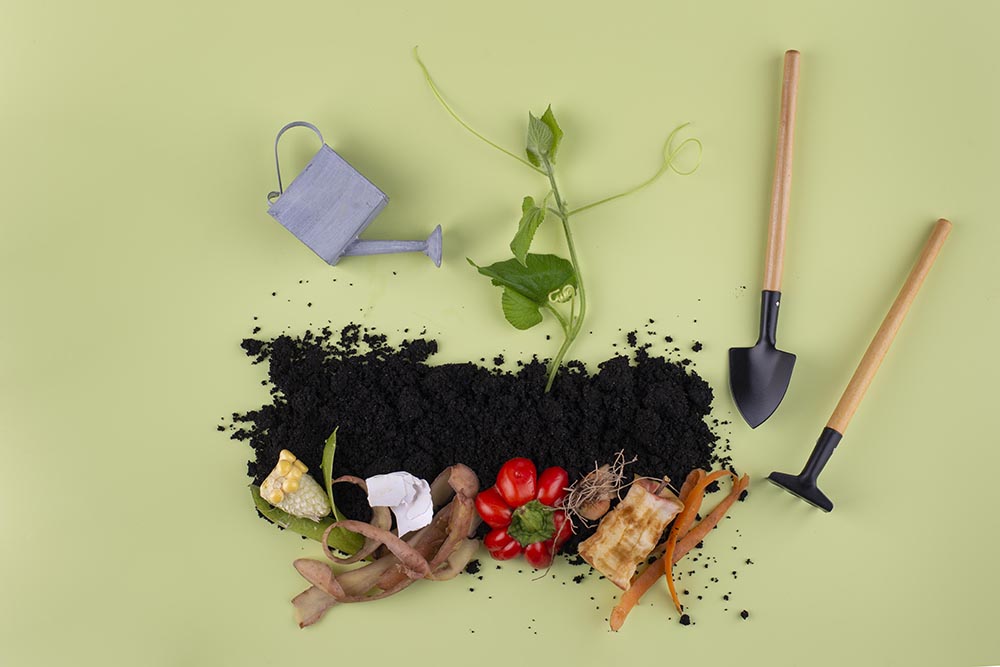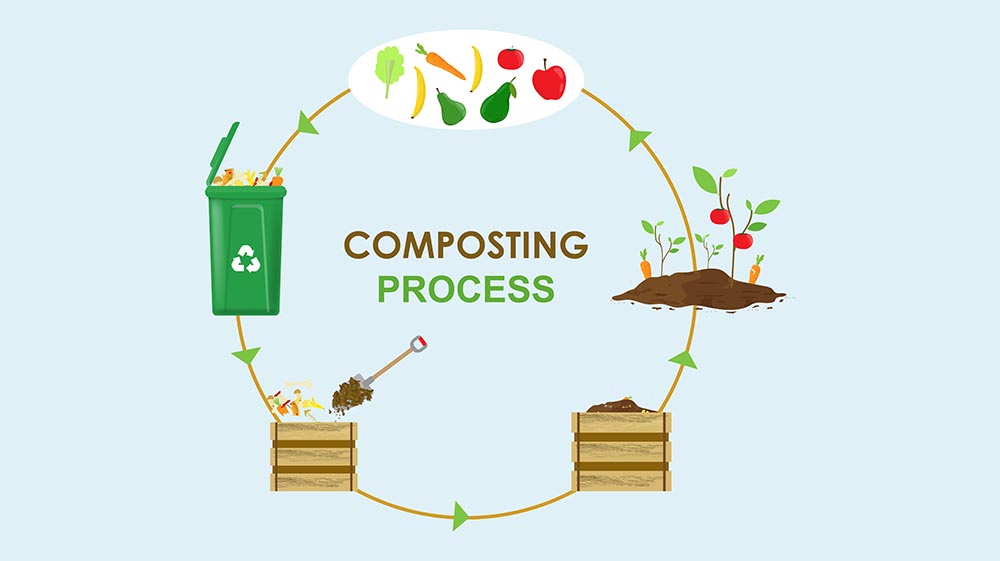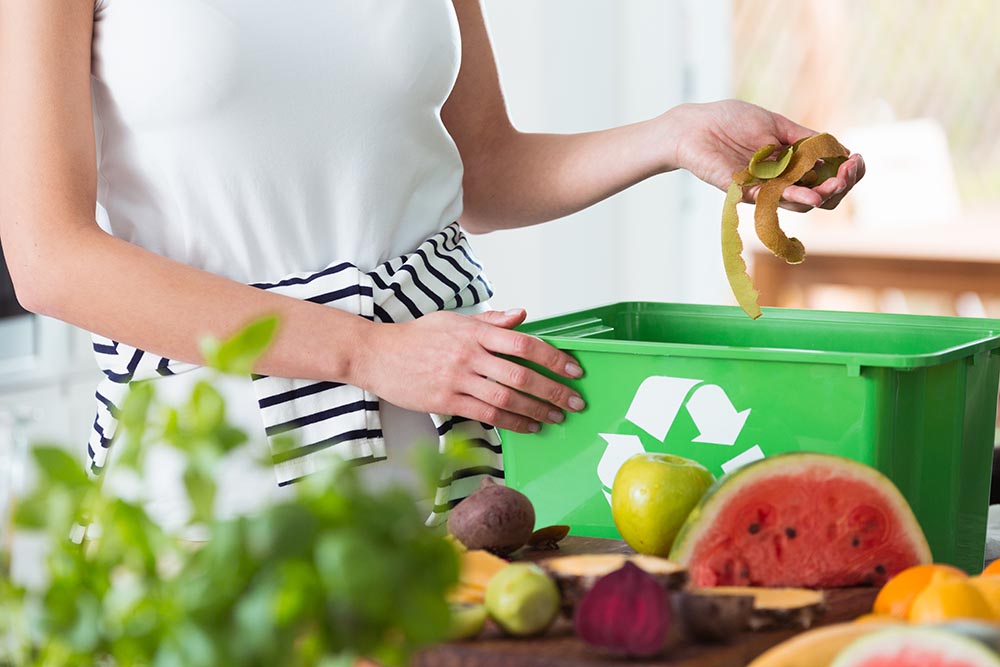What is an electric food composter? How do you use one and is it good for homemade compost?
What is an electric food composter? How do they work and are they suitable for making compost at home? In this article, we’re going to outline some of the benefits of having an electric food composter and how they differ from traditional composting methods. If you have been thinking about recycling some of your food waste and turning it into food for your plants at home, then this is the article for you!
What is an electric food composter?
So, what is an electric food composter? Simply put, an electric food composter is a kitchen appliance that can take your food waste and turn it into a compost-like fertilizer in a matter of days. An electric food composter is also very eco-friendly and a part of circular living as it only uses a very small amount of electricity. Rated at 65 Watt per hour which in Thailand is costs about 150 Baht per month.
That said, it’s important to make the distinction between an electric food composter and a dehydrator. These two machines are vastly different (although they do share some similarities) and produce a different by-product at the end.
An electric food composter relies on microbes, heat, and aeration to break down food – much like a traditional garden composter does. A dehydrator on the other hand uses intense heat to dry out all of the moisture from your food waste to create a by-product that requires further decomposing before being ready to apply to your plants.
- Electric food composters create a ready-to-use compost
- Dehydrators create a dried out food waste by-product that isn’t quite ready for use
One of the major benefits of having an electric composter is the fact that they are compact enough to fit into your kitchen – whereas a traditional composter would not. In addition to that, electric composters can produce compost in as little as a few days. This is a huge advantage over traditional composting methods which can often take anywhere from two weeks up to twelve months!
Before we go into how to use an electric composter, let’s list some of the key differences between an electric composter and a dehydrator.

The differences between an electric composter and a dehydrator
Electric composter:
- The microbes present in an electric composter decompose your food waste
- The decomposition process is ongoing which means you don’t have to do it in single batches (you can simply throw your food waste into the mix as and when you want to)
- The decomposition rate reduces your food waste by 80-90% similar to the dehydrator, however, the finished by-product is a type of compost that can be readily used with your plants in the same way that you would apply store-bought fertilizer
- You don’t have to clean out your compost tray every day as you do a dehydrator
- You should leave a small portion of your fertilizer in the electric composter so you can continue with use, and do not need to replace the microbes altogether and start again
- The process is much easier, requires less effort, and your food waste is turned directly into a usable fertilizer with no extra steps required!
Dehydrator:
- A dehydrator utilises an immense amount of heat to dry out the moisture from your food waste
- The food waste is turned into dry food waste and reduced in volume by up to 80-90%
- The by-product from a dehydrator is dehydrated food waste (and is not composted) – a common misconception
- Next, you have to bury this by-product in the soil and allow it to compost over time to create a fertiliser – thus a dehydrator is only recommended for those with a garden or access to an allotment
- Each batch cycle will take about 4 to 5 hours to complete
- Then you have to remove the dehydrated food waste and clean the tray out to start all over again (every time after use)
- This process is quite time-consuming and the fact that the by-product of a dehydrator cannot be used as fertiliser immediately without further decomposition is a negative
As you can see from the two lists above, the electric food composter is far superior for those who do not have a garden and would like to turn their food waste into “ready-to-use” compost in just a few days.
Dehydrators certainly have their uses, but unless you have garden space where you can bury your dried-out food waste for further decomposition, they will be useless to you.
And of course, if you were to have a big enough garden space, then you may wish to consider traditional composting methods using a larger compost bin to produce greater yields – albeit over longer periods.

How do you use an electric composter?
The process of using an electric composter is incredibly simple:
- Prepare the food waste by draining the water out as much as possible and taking out the hard things such as bones, shells, etc.
- Open the composter bin cover and put your food waste inside
- The mixing blade with mix the food waste with the microbial and air automatically
- The microbial will do the composting continuously / perpetually
- Normally the food waste will be decomposed within 24 hours
- Just leave the by-product in the bin until it reaches the full mark at the side of the bin before you take out the compost for use (normally it will take about a bit over 1 month)
- At this point, you can open the tray and remove some of your compost (it’s always recommended that you leave some in to maintain the microbes and continue adding food waste as and when), and voila – you can apply your compost mix to your plants to give them all of the nutrition they need to thrive
Is an electric food composter good at making compost?
So, is an electric food composter good at making compost? Yes! The fact that an electric composter can create “ready-to-use” compost in as little as a few days is astonishing. This is done by simply taking traditional composting methods and executing them on a much smaller scale – whilst simulating the process artificially and over a shorter period of time. These excellent machines are very good at making compost and will make the perfect addition to your home.
- If you wish to reduce your carbon footprint
- Keep food waste out of landfills
- And turn your food scraps into food for your plants
- All with the size and convenience of an appliance that can fit into your kitchen;
Then an electric food waste composter is an absolute must-have!
Conclusion
If you would like some more information on electric composters and how the process works, or you would like to know more about the various electric composter products we have available so you can also help the planet by trying circular living, then please do not hesitate to contact us today – we’re always happy to help!


